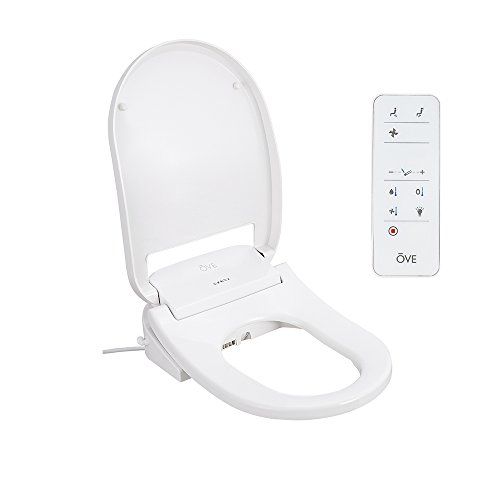How To Get Rid Of Cockroaches In Bathroom
Plagued with the persistent issue of how to get rid of egg smell in your bathroom? Our guide is here to help, providing a wealth of proven techniques to restore freshness to your bathroom environment. From natural remedies to powerful cleaning products, we delve into the diverse solutions available. Don't let unpleasant odors linger any longer; dive in to liberate your bathroom from the stubborn egg smell.

Overview
The problem of how to get rid of egg smell in the bathroom is often tied to several factors. Firstly, poor ventilation can trap odors, making them linger for longer. Secondly, certain plumbing issues, such as a dry P-trap, can allow sewer gases to seep into your bathroom. Thirdly, leftover organic matter, like hair and soap residue in your drain, can foster bacteria growth, producing an egg-like smell. Fourthly, hard water can contribute to the odor, due to its high mineral content. Lastly, certain cleaning products can react with bacteria or mineral deposits, producing a smell similar to rotten eggs. In tackling this issue, it's important to consider these factors and approach the problem systematically.
Ventilation
Proper ventilation is crucial in maintaining a fresh bathroom atmosphere. Without it, unpleasant odors like the egg smell can become trapped and linger for extended periods. A well-ventilated bathroom allows for the continual exchange of indoor and outdoor air, effectively diluting and removing odors. Therefore, one of the first steps in eliminating the egg smell is to check the ventilation system, ensuring that fans and windows are working correctly and used regularly. Neglecting this aspect can significantly hamper your attempts at maintaining a fresh-smelling bathroom.
See more: How To Get Rid Of Egg Smell In Bathroom
Plumbing Issues
Plumbing issues, particularly a dry P-trap, can lead to the release of sewer gases into your bathroom, often responsible for the egg-like smell. The P-trap is designed to keep a water seal that prevents sewer gases from entering the home. However, if the trap dries out, possibly due to infrequent use or evaporation, these gases can escape into your bathroom. Ensuring that your P-trap is not dry and your plumbing system is in good working order is crucial in eliminating this source of foul odors.
Organic Matter in the Drain
Accumulated organic matter, such as hair, soap residue, and other debris in your drain, can lead to bacterial growth. This bacterial activity can produce a sulfurous, egg-like smell that permeates your bathroom. Regularly cleaning your drain and removing any buildup can help prevent this problem. Moreover, using a drain cover can be effective in preventing larger debris from entering and clogging your drain. Attending to this can significantly help in maintaining a fresh and clean bathroom.
Hard Water
Hard water, characterized by high mineral content, can also contribute to the egg-like smell in your bathroom. These minerals, particularly sulfur, can react with other elements and produce a smell similar to rotten eggs. If your water source is hard water, you might want to consider installing a water softener. This device can reduce the mineral content of your water, thereby reducing the chance of developing the egg smell. A water test kit can help you determine if hard water is a contributing factor.
Reaction of Cleaning Products
Finally, certain cleaning products can react with bacteria or mineral deposits in your bathroom, producing a rotten egg smell. This is especially true for products containing bleach, which can react with the sulfur in hard water or bacteria. To avoid this, consider using non-bleach cleaners or specific products designed for hard water. Always remember to read product labels and follow the manufacturer's instructions. This mindful choice of cleaning products can help keep the egg smell at bay.
Why does my bathroom smell like rotten eggs?
The egg-like smell in your bathroom can be due to several reasons such as poor ventilation, plumbing issues like a dry P-trap, accumulated organic matter in the drain, hard water, or even certain cleaning products reacting with bacteria or mineral deposits. Each of these factors can contribute to creating an unpleasant odor. Regular maintenance, proper cleaning, and addressing these specific issues can help eliminate this smell.
How can I improve the ventilation in my bathroom?
Improving ventilation in your bathroom can be achieved by ensuring that exhaust fans are working correctly, and windows are open regularly to allow fresh air in. If your bathroom doesn't have an exhaust fan, consider installing one. Regular use of these ventilation methods can significantly help in reducing trapped odors.
What is a P-trap and how does it contribute to the egg smell?
The P-trap is a plumbing feature designed to trap a small amount of water after use, which forms a blocking seal that prevents sewer gases from entering your home. If this trap dries out due to infrequent use or evaporation, sewer gases, which can smell like rotten eggs, can escape into your bathroom. Regularly checking your P-trap and plumbing system can help prevent this issue.
How can hard water contribute to the odour of eggs in my bathroom?
Sulfur, one of the many minerals found in hard water, can react with other substances to give out an odour resembling rotten eggs. Hard water may be a contributing cause if you detect this smell in regions where you utilise water. This issue can be solved with the use of a water softener or cleaning supplies made especially for hard water.
How can I keep my bathroom from smelling like eggs while organic waste is present?
To stop bacterial growth, which can produce an odour resembling rotten eggs, regularly clear your drain and remove any accumulation of organic matter like hair, soap residue, and other debris. Larger debris entering your drain and clogging it can be avoided by using a drain cover. The key to avoiding this problem is routine upkeep and cleaning.
Understanding how to get rid of egg smell in the bathroom can significantly improve your comfort and overall hygiene in this vital space. We've explored several factors that contribute to this problem: from the importance of proper ventilation, potential plumbing issues, the impact of organic matter and hard water, to the reactions of certain cleaning products.
Regular maintenance, careful selection of cleaning products, and addressing these specific factors can help you eliminate and prevent the recurrence of the egg smell. By taking these steps, you're on your way to maintaining a fresher, more pleasant bathroom environment, successfully addressing the challenge of how to get rid of egg smell in your bathroom.








.jpg)








